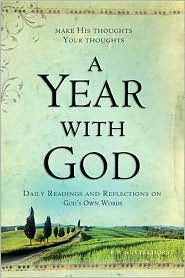In Douglas Adam’s humorous novel, The Hitchhiker’s Guide to the Galaxy, scientists build the computer Deep Thought and ask it “the great Question of Life, the Universe, and Everything.” After contemplating for seven and a half million years, the computer responds, “I don’t think you’re going to like the answer.” After the scientists insist the computer say it anyway, it tells them that the answer is forty-two. Then it adds—since they aren’t happy with the answer—“I think the problem, to be quite honest with you, is that you’ve never actually known what the question is.”
When bad things happen to us or to people we care about, we will ask the question, “Why did this happen?” We might word it, “What did I do to deserve this?” Or “What was God thinking?” In any of the manifold variations of the question, the substance remains the same. We are looking for something we did or didn’t do that might be responsible for our situation. We want to know what needs to be done so we can get out of the current bad circumstance, and what we can do to keep such circumstances from happening again. Like Job’s friends, we are convinced that bad things happen to bad people and good things to good people. It would be comforting if it were so, and would be a simple way to explain what goes on in the world. Unfortunately, Job’s friends were wrong and so are we.
Both Job’s friends and we are like the fictional scientists who asked the computer Deep Thought their question and get an answer that seemingly makes no sense. The problem for us as we look at suffering is that we don’t seem to actually know what the question is.
The reality is, the question we need to ask is not, “Why did this happen.” That’s the wrong question.
The real question is: “Do I trust God?”
We sent God out to get a bottle of milk six hours ago. When he finally comes back, he smells of perfume and there is lipstick on his collar. So. Do we believe that he still loves us and is faithful to us when he hands over the milk or not? That’s what we face when bad stuff happens. It is easier to believe he loves us when he brings us roses and gives us a hug and kiss. But we need to believe him during those times when he doesn’t. That’s when it is hard. But it is a choice we make, like all the other choices in our lives. Every day we make them. Do I get a second cup of coffee? Do I wear the blue socks or the brown socks? Paper or plastic?
Believing God is not a mountain top experience. It is not a once in a lifetime, earth rocking transformation. It is instead a daily occurrence: the stuff of which a day is built. It is mundane.
God’s love is not dependent on what we do or don’t do. The author of Ecclesiastes writes:
“I have seen something else under the sun: The race is not to the swift or the battle to the strong, nor does food come to the wise or wealth to the brilliant or favor to the learned; but time and chance happen to them all. Moreover, no man knows when his hour will come: As fish are caught in a cruel net, or birds are taken in a snare, so men are trapped by evil times that fall unexpectedly upon them.” (Ecclesiastes 9:11-12)
So does that mean that you can do everything right, be a good person, follow all the directions and disaster can still strike?
Yes.
On any given morning a whole lot of people will get up and eat their breakfasts. Some will kiss their spouses and head off to work. Some will beat their spouses. Some will beat their kids. There will be people who get up, take a deep breath, shower and then go out and murder someone, or have an affair, or embezzle money, or lie. On any given morning there are those who have been up all night drinking and using drugs and having unprotected sex with people they aren’t married to. Some people will be laughing, some people will be crying. Some people will be doing what they are supposed to do and some will not. Some are good Christians. Some are bad Christians. Some are not Christians at all.
But three thousand people out of the six billion on planet Earth one bright September morning went to work like they always did, but they never came home again. Terrorists chose to fly airplanes into their workplaces that particular day. Were they greater sinners than all the other people on the planet?
Bad things can happen without warning and without reason and it isn’t because God is mad at you or loves you less than those who didn’t suffer that day.
“Now there were some present at that time who told Jesus about the Galileans whose blood Pilate had mixed with their sacrifices. Jesus answered, ‘Do you think that these Galileans were worse sinners than all the other Galileans because they suffered this way? I tell you, no! But unless you repent, you too will all perish. Or those eighteen who died when the tower in Siloam fell on them—do you think they were more guilty than all the others living in Jerusalem? I tell you, no! But unless you repent, you too will all perish.’ (Luke 13:1-5)
When you’re driving down the freeway and traffic slows in front of you and you put on your brakes to stop, is it your fault when the person behind you doesn’t and plows into the back of your car? Of course not. You may drive carefully. That doesn’t make your neighbor drive carefully. Were you a worse sinner than the driver in the lane next to you who went on unscathed? How about that crack dealer who was beating up his girl friend a block away?
So today, for this moment, choose to believe God. He loves you anyway, regardless of your choice. Why choose to believe something sad?
Friday, January 28, 2005
Subscribe to:
Post Comments (Atom)






No comments:
Post a Comment